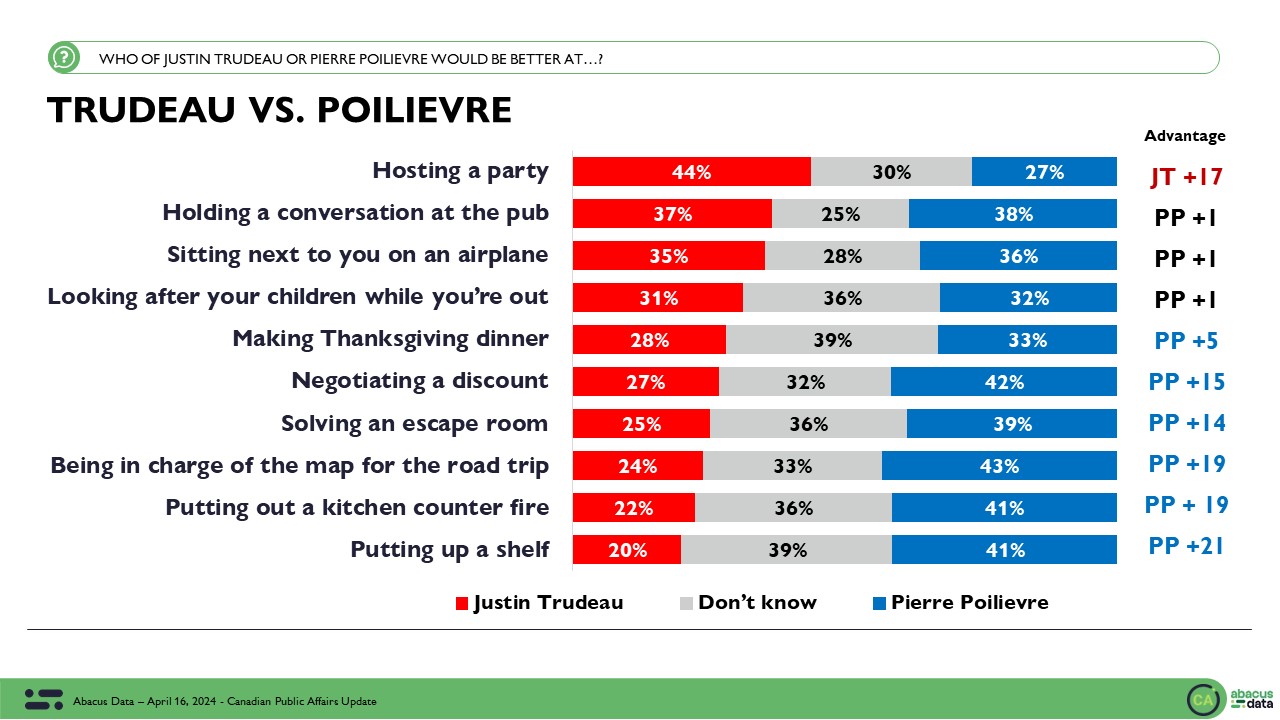Transition from Fossil Fuels? Not all that Controversial.
May 20, 2017
One of the most topical political debates in Canada in recent months has been about how much our economy should depend in the future on harnessing fossil fuel resources.
In our latest survey, we decided to do some more probing to understand current feelings.
• Canadians tend to believe that demand for oil is more likely to rise than fall over the coming 10 years but as likely to fall as rise if we look 30 years out. The number of people who foresee falling demand more than doubles from 17% in 10 years to 39% in 30 years.
• We asked people what they would like to see happen to demand for oil, in an ideal world. While 51% felt demand for oil would grow over 10 years, only half that number 24% would like that to be the case. Almost twice as many prefer to see demand for oil decline (44%).
Looking out 30 years, only 19% would like to see demand rising, while roughly three times that many (55%) would prefer to see demand falling.




• It’s not surprising that Albertans see some of these issues differently, but the differences are smaller than might be expected. In that province only 54% expect oil demand to grow over the next 10 years. Thirty years out, 47% of Albertans expect demand will be rising, while 37% expect it will be falling.
• When it comes to what Albertans would like to see happen, a plurality hopes to see demand rising both at the 10-year (50%) and 30-year mark (39%), however, the proportions reveal mixed feelings even within a province which has experienced such significant benefit from oil resources.

We then explored a little bit more how people felt about the role of oil and gas in economic strategy for Canada and Alberta in the future.
With the preamble “oil and gas has been a big contributor to Canada’s economic well-being for decades”…we asked if people to choose whether “Canada’s priority should be to promote the use of Canada’s oil and gas because this is good for our economy”, or “ Canada should put a priority on other ways of growing our economy because in the future oil and gas will be replaced by other energy sources”.
• By a two to one margin, people favoured the more diversified approach, including 3 out of 4 Liberal and NDP voters. Among Albertans and Conservatives, opinion was almost evenly split. Millennial voters are 9-points more likely than baby boomers to want something other than a priority on oil and gas.
• We asked the same question about Alberta’s economic future. Almost identical numbers 66% v 34% said Alberta should prioritize other ways of growing its economy, including a majority of Albertans (56%) and 48% of Conservative voters.


Finally, we probed on whether people believe that a transition away from fossil fuels is necessarily harmful to the economy or whether such a shift could be done in a way that might end up creating an even stronger economic future.
• Three out of four (74%) people believe “if we are smart and thoughtful in how we plan a transition away from fossil fuels, Canada’s economy can be even more successful in the future”. Most Albertans (64%) and Conservative voters (61%) agree. Only 26% across the country believe that “no matter how hard we try, Canada’s economy will suffer in the future if demand for oil and gas is replaced by demand for other types of energy.”


• Confidence that Alberta could navigate a transition successfully is almost as high. Two out of three across Canada, and in Alberta believe a smart and thoughtful transition can see an even stronger Alberta economy in the future. Most Conservative voters (55%) also believe this can happen.
UPSHOT
According to Bruce Anderson: “In political and media circles, it can be characterized as controversial to talk about a transition away from a fossil fuel dependent economy. But for most voters, the idea doesn’t seem radical – they sense that given future demand for oil, it’s better considered inevitable.
Some environmental advocates may look at these numbers and worry that Canadians seem comfortable with a too gradual shift. However, a reasonable interpretation would be that people want a shift that can be accelerated, provided it is thoughtful about limiting economic disruption while seeking to create new economic opportunity.
Canadians, and many in Alberta as well believe a transition from a more fossil fuel dependent economy is, not so much a question of “whether”, but how and how fast.”
METHODOLOGY
Our survey was conducted online with 1,500 Canadians aged 18 and over from April 21 to 24, 2017. A random sample of panelists was invited to complete the survey from a large representative panel of over 500,000 Canadians.
The Marketing Research and Intelligence Association policy limits statements about margins of sampling error for most online surveys. The margin of error for a comparable probability-based random sample of 1,500 is +/- 2.6%, 19 times out of 20. For the split-sample questions, the margin of error for a comparable probability-based random sample of 750 is +/- 3.7%, 19 times out of 20.
The data were weighted according to census data to ensure that the sample matched Canada’s population according to age, gender, educational attainment, and region. Totals may not add up to 100 due to rounding.
For questions related to the best way forward for Canada and Alberta and whether transition away from oil and gas would be good for Canada or Alberta, we split the sample. A random half of the 1,500 respondents were asked questions related to “Canada” while the other half were asked questions related to “Alberta”.
ABACUS DATA INC.
We offer global research capacity with a strong focus on customer service, attention to detail and value-added insight. Our team combines the experience of our Chairman Bruce Anderson, one of Canada’s leading research executives for two decades, with the energy, creativity and research expertise of CEO David Coletto, Ph.D.




